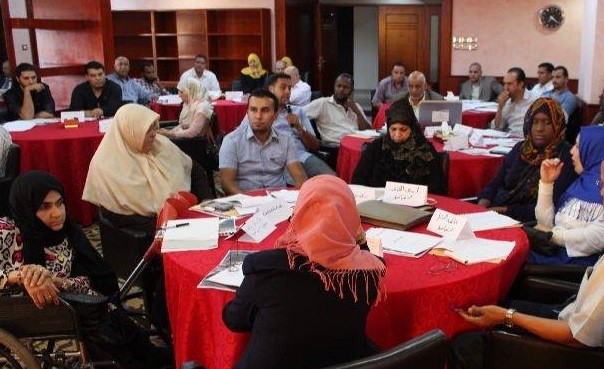
Project Title: Libya Elections and Governance Support Program (LEGS)
Duration: October 2012 – September 2019
Objective:
The LEGS program is providing technical assistance to Libyan government institutions and civil society organizations as they attempt to navigate the country’s transition from an authoritarian regime to a democratic system. CEPPS/NDI is providing assistance to newly created civil society organizations (CSOs) that encourage broad public participation in the political process and elected institutions with the goal of increasing citizen engagement in policy development processes. CEPPS/NDI works in particular with historically marginalized groups, including women, young people and ethnic minorities who are organizing to increase representation in Libyan politics.
Program Activities:
1. Provide technical support to Libya's national legislative bodies;
2. Conduct training programs to increase the capacity of civil society groups representing women, youth, disabled persons, and other marginalized segments of the population to conduct advocacy efforts and influence the policy-making process at national and sub-national levels;
3. Provide support to domestic election observation organizations;
4. Distribute resource materials related to democratic development to a broad cross-section of civic activists;
5. Encourage the awareness, understanding, and adoption of best practices in representation and legislative functioning once national consensus is achieved on a unified legislative institution.
Program Status/Achievements:
- Engaged policy-makers at a national level with concrete recommendations to enhance the political participation of previously marginalized groups (e.g., proposals establishing electoral and representation quotas for women and youth, operational improvements to facilitate the full participation of persons with disabilities, and inclusion of native-tongue education for ethnic minorities);
- Provided support to parliamentarians and staff on their representation, executive oversight, and lawmaking duties, including developing online resources for distance learning;
- Organized roundtable discussions between parliamentarians and their constituents to provide a platform for citizens to directly communicate with elected representatives;
- Conducted trainings with four networks of Libyan CSOs who together deployed 4,210 activists to observe voting in three electoral events and a fifth that is preparing to field more than 1,800 observers in the anticipated constitutional referendum.
- Coordinated a meeting of 25 representatives of Libyan Tebu and Amazigh communities to identify common advocacy issues.
- In early 2017, the program will support the Libyan Network for Democracy Development launch a campaign advocating for progress toward a referendum.







Comment
Make a general inquiry or suggest an improvement.